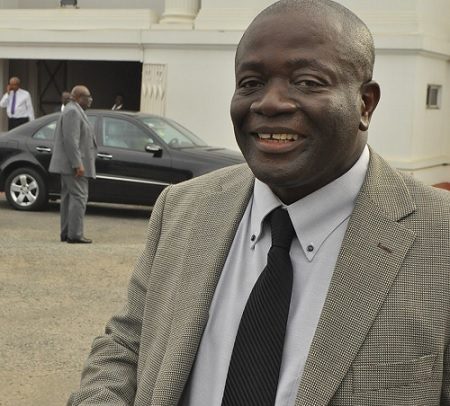Nii Amanor Dodoo
An extract of a 30-day inventory of assets and property and official administrative reports by the Receivers of uniBank Ghana has revealed that a significant number of facilities advanced to related and connected parties had incomplete or no loan origination documents.
It also revealed that most of the facilities were solely approved by the executive, with the approved amounts far exceeding the authorised limits.
Issued on January 30, this year, the report said gross related and connected party loans and advances was GH¢1,937 million of which GH¢0.2 million (0.01%) were classified as performing.
The net carrying value of related and connected party loans and advances was GH¢46 million of which GH¢0.3 million related to loans was classified as performing.
“Only 6% of related party loans had perfected collaterals, with market and forced sale values estimated at GH¢13 million and GH¢10 million respectively.
“The majority of related and connected party loans had either expired or were scheduled to be fully repaid by the end of 2018. Inadequate repayment history generally made these loans to be of poor quality. A number of these loans had also been refinanced as bullet payment loans causing the loans to be classified as performing. Based on the repayment history, these loans are likely to become non-performing when they fall due.”
Gross loans
Gross loans and advances and other assets as at 1 August 2018 totaled GH¢7.5 billion before impairment adjustments of which GH¢5.4bn (72%) are due from related parties.
Post-impairment related parties advances are marked at GH¢45.8 million.
3rd party loans and advances
Only GH¢0.3 billion of the GH¢2.6 billion gross third party loans (TPLs) were classified as performing.
This included GH¢48.8 million of staff loans, which could become non-performing in the event employees absorbed by The Consolidated Bank were laid off.
Performing TPLs
Gross third party gross loans and advances (TPLs) was GH¢2,640 million, of which GH¢253.3 million (9.6%) were classified as performing.
Also, the net carrying value of TPLs loans and advances was GH¢470.8 million of which GH¢229.6 million relates to loans classified as performing.
Non performing TPLs
Non-performing TPLs represented 90% of the gross third party loans and advances.
The bank had a GH¢0.9 billion exposure to the construction and building sector which was made up 39% of the gross non-performing balance.
The gross value of the portfolio of GH¢2.6 billion was impaired by GH¢1.6 billion. Furthermore, uniBank held a total of 91 collaterals for its top 50 loans out of which 69% had not been perfected.
Financial position
uniBank had net liabilities of GH¢6.56 billion and GH¢7.2 billion as at 20 March 2018 and 1 August 2018 respectively compared to unadjusted net liabilities of GH¢82.1 million per 20 March 2018 management accounts.
After full impairment of shareholder advances included in other assets, uniBank had net liabilities of GH¢6.56 billion as at 20 March 2018 and GH¢7.2billion as at 1 August 2018.
Balance sheet
Key findings in the bank’s balance sheet revealed exclusion of customer deposits to the tune of GH¢2.3 billion from December 2017 prudential returns to BoG.
Also, there was overstatement of loans and advances to customers by GH¢1.3 billion in December 2017 prudential returns to BoG as also there were significantly impaired loans and advances book.
Again, there was significant non-interest earning related party advances, not made in accordance with Act 930 and also not reported to BoG while also there were recorded inadequate cash flows to meet short to medium term maturing obligations and balance sheet insolvent.
Advances to Shareholders
Advances to shareholders, with a gross amount of GH¢3.7 billion, formed the main component of other assets (98% of the gross amount).
Advances to shareholders comprised mainly payments made for equity investments on behalf of related entities, Special Purpose Loans (SPV) loans and other advances to related and connected entities under unusual credit arrangements.
“Underlying documents in support of a number of transactions amounting to GH¢1.1 billion are yet to be provided. For a number of these transactions, only signed payment or journal vouchers were available. Indicative interest of GH¢2.4 billion on advances to shareholders is yet to be recognised.
“The shareholders have made promises to repay these amounts. As the shareholders were unable to provide reasonable proof in support of their ability to settle these balances, the outstanding amounts have been fully impaired.”
Composition of assets
Total assets stood at GH¢2.2 billion with loans and advances, as well as government and other securities constituting 82% of these.
Quality of assets
97% of top 50 loans were classified as non-performing based on BoG’s prudential guidelines. 69% of collaterals for top 50 loans had not been perfected.
Credit administration
Non-adherence to credit administration policies and inadequacies in recovery efforts led to the significant deterioration in amounts that had been advanced as loans to customers, including related and connected parties.
“Related party loans (gross) amounted to GH¢1.94 billion, representing 42% of total loans. Included in other assets are amounts totaling GH¢3.7 billion that had been advanced to shareholders, related and connected parties which was considered impaired.”
Background
The Bank of Ghana (BoG) on 20 March 2018 appointed KPMG as Official Administrators of uniBank Ghana Limited.
The Bank of Ghana (BoG) on 1 August 2018 terminated the appointment of the Official Administrator following the placement of the bank under Receivership in accordance with the Banks and Specialised Deposit-Taking Institutions (BSDI) Act, 2016 (Act 930) on the same day.


